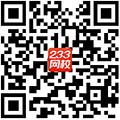注意事项:
1.考试时间为l20分钟,满分为l50分。
2.请按规定在答题卡上填涂、作答。在试卷上作答无效.不予评分。
一、单项选择题(本大题共30小题,每小题2分。共60分)
在每小题列出的四个备选项中选择一个最佳答案,请用28铅笔把答题卡上对应题目的答案字母按照要求涂黑。错选、多选或未选均无分。
1. Which of the following phonetic symbol is not right?

2./t/is not fully pronounced in
A. football
B. suitcase
C. at home
D. hot day
3. Children may get into some bad habits__________they lack sell-discipline.
A. when
B. unless
C. though
D. until
4. Shenzhen has passed a new law to ban smoking in public, which canthe
civilization of a city.
A. weigh
B. balance
C. explore
D. measure
5. Even when__________to such tough living conditions, the children would never have anycomplaint.
A. exposing
B. exposed
C. expose
D. to expose
6. The school has made it a rule that no student shall take an illegal vehicleaschool bus.
A. other than
B. rather than
C. or rather
D. or else
7. Much of the debate on an ongoing society in China has focused on the extended families__________the number of "empty-nets" is growing by the millions every year.
A. that
B. when
C. where
D. which
8. If glohal warming goes on like this, Maldives in the Indian Oceanin the century to come.
A. disappears
B. disappeared
C. has disappeared
D. is going to disappear
9. What rhetorical device is used in the sentence He is an all__________purpose basket?
A. Pun.
B. Simile.
C. Metaphor.
D. Transferred epithet.
10. The criteria to determine a word's category include all the following EXCEPT__________ .
A. meaning
B. inflection
C. distribution
D. parts of speech
11. Which of the following is most suitable for the cultivation of linguistic competence?
A. Sentence-making.
B. Cue-card dialogue.
C. Simulated dialogue.
D. Learning syntax.
12. When students learn "apple, orange", the teacher gives students another word "fruit".Which principle doe, s the teacher follow in his/her vocabulary teaching?
A. Word-choice principle.
B. Presentation principle.
C. Culture principle.
D. Systematic principle.
13. Teacher: After listening, ansu,er the following two questions according to what you haveheard from the tape.
(1) What is the relationship between the speakers?
(2) What are the speakers' attitudes towards each other?
What strategy does this listening activity help to train?
A. Inferring.
B. Listening for the gist.
C. Listening for details.
D. Dictation.
14. Which of the following does not belong to the post-listening activities?
A. Multiple-choice questions.
B. Answering questions.
C. Dietogloss.
D. Listen and tick.
15, What reading strategy does "picking out some particular pieces of information in. a text"reflect?
A. Skimming.
B. |nferring.
C. Scanning.
D. Skipping.
试题推荐>>5套教师资格证考试《英语学科知识与能力》(初级中学) 深度押密卷
教师资格证VIP班:怎样让备考才万无一失?233网校教师资格讲师带你告别盲目备考,轻松掌握考点!零基础VIP班,不过免费重学!点击免费试听>>

